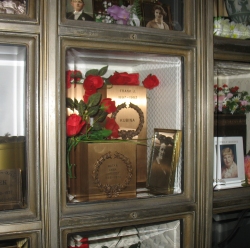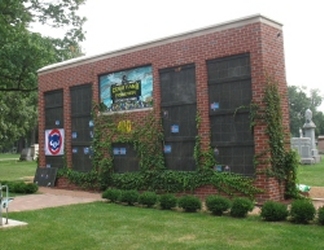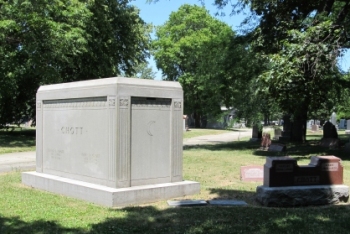
Grave Matters
Ambrose Bierce, in his Devils Dictionary defines the word grave as: "grave (n.) - a place where the dead are laid to await the coming of the medical student."
Grave has many definitions and synonyms: tomb, crypt, sepulcher, coffin, casket, mausoleum, sarcophagus and more. One dictionary defines grave to mean a place where the dead are laid, usually with a stone marker. There are three basic forms of graves in BNC: burial, cremation and inurnment, and above ground burial.
The most common grave is dug in the earth and bodies are buried. This is reflected in the word inter which derives from the Latin word terra, meaning earth. Stone markers, if present, may be simple or ornate.
Stone markers, if present, may be simple or ornate.
Cremation results in cremains which are inurned. The urns are put into a columbarium. Columbaria may have many urns which are in niches. Some columbaria have elaborate display fronts such as in the crematorium/columbarium at BNC. Some may have a simple stone front while others may exhibit whimsy. Some columbaria are for a single individual or family.


Above ground burials at BNC are most commonly mausoleums; stately houses of the dead. There are no simple mausoleums but some may be more elaborate than others.


The other, less common, form of above ground burial is a coffin placed in a sarcophagus which may be wholly or partially above ground. Sarcophagi may also be as simple or elaborate as the designer wishes.


Whatever method is used, the grave provides a place for the earthly remains and a place where the living may memorialize, remember, and celebrate the life of those who have gone before.